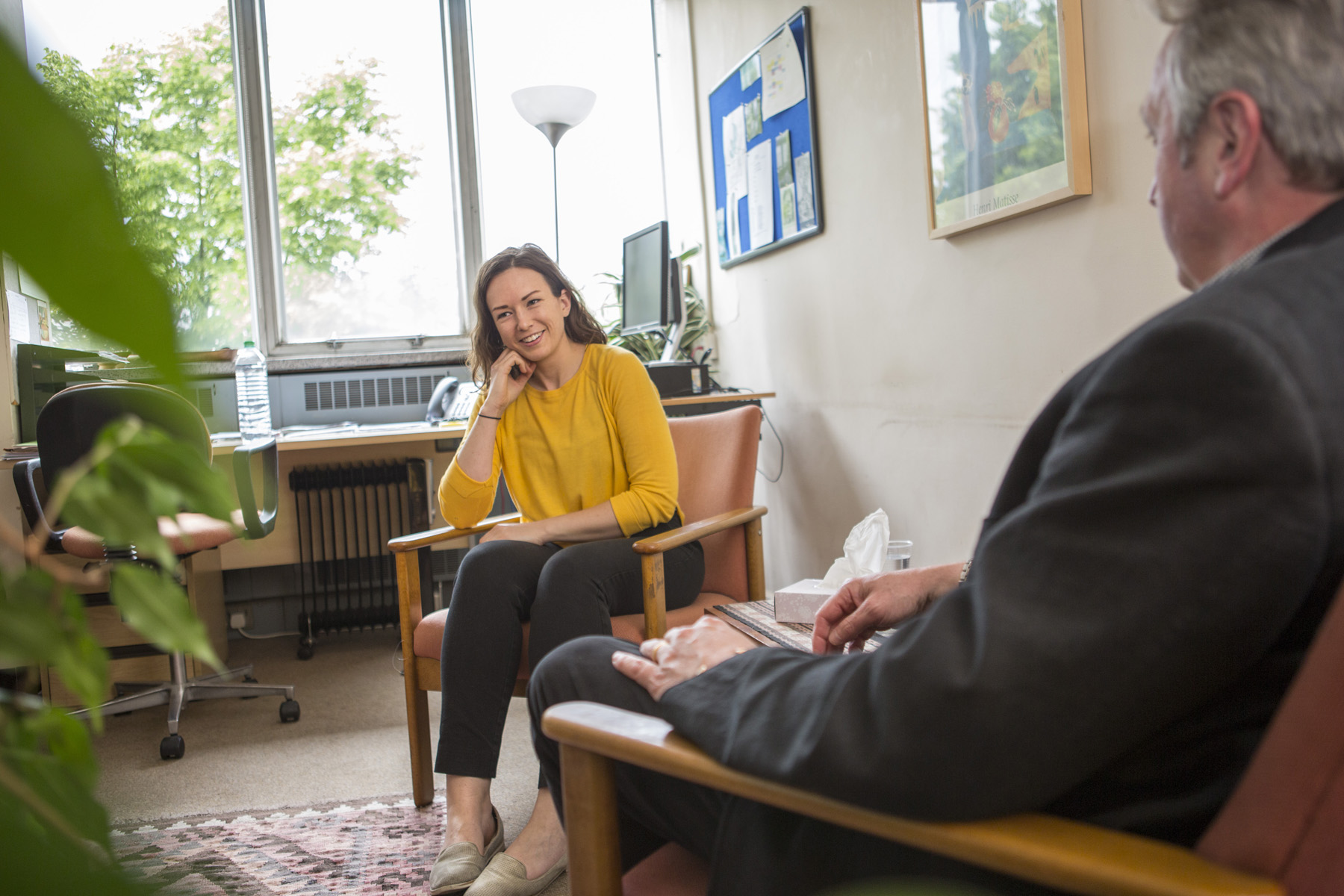
Research shows that talking therapies are the best way of treating most emotional problems. This is what we specialise in.
Emotional difficulties of one kind or another are common and can be very draining. As many as one in four of us will be clinically depressed at some point in our lives and many people will experience other psychological or behavioural difficulties.
Life is inherently stressful. It is not always easy to know whether we are dealing as well as we can with the real strains of living, or whether the way we are responding to life’s difficulties is a problem itself.
Research shows that talking therapies are the best way of treating most emotional problems. That is what we specialise in here.
You may find it relatively straightforward to talk to a professional about the way you are feeling – or you might find the idea rather daunting. While it is common to feel anxious about your first visit, most people feel that therapy helps them – if not straight away, then once the treatment gets going.
What we do
We’ll work closely with you and your GP to decide what therapy is likely to be most helpful for you.
One of our therapists will work with you, listening to what you say – and don’t say – about your experiences.
Our therapists are highly qualified and come from a variety of different disciplines (clinical psychology, medicine, nursing and social work). They have all received further specialist training, often in psychoanalytic psychotherapy.
This type of therapy allows you to talk about your difficulties and share your struggles in a safe place. You’ll explore with the therapist how your issues link with the rest of your life.
Psychoanalytic psychotherapy is not a treatment you are prescribed or given: you play an active part in it.
What we can help with
We work with the full range of mental health difficulties, from problems that are less long-lasting to those that are severe.
Emotional struggles present themselves in many ways: for example, depression, anxiety and relationship difficulties. You may be struggling to work and concentrate, or you may find yourself feeling irritable, tearful or angry.
Sometimes, there is a clear-cut diagnosis (eg anorexia, obsessive-compulsive disorder, phobia or post–traumatic stress disorder) and sometimes the problem will require additional psychiatric intervention or medication (eg for bipolar-affective disorder).
But more often, the problem may be more diffuse. You may have become aware that your symptoms, or even aspects of your personality, make life difficult for you. You may find yourself behaving self-destructively in ways that are interfering with your happiness or that of others.
You may feel worried about some aspect of your behaviour – such as feeling aggressive or jealous – or fearing dependency or addiction – or you may feel isolated and unable to sustain a sexual (or other) relationship.
Experiences in your recent or more distant past may have left you feeling very unhappy or even traumatised. There may have been a difficult separation or bereavement to negotiate – or a relationship that has left you very unhappy. You may be struggling to come to terms with something like a serious health problem or chronic pain.
When we meet you for your consultation, we will help you to gain a fuller understanding of what you are wrestling with and think with you about how best to go forward.
After an initial consultation, some people only need to be seen a few times, while others will need longer term treatment. Our therapies are always tailor-made to suit your individual needs.
How to access our services
Most of the adults and young people who are referred to us have asked for help from their local doctor (GP) first of all. So if you would like to be referred here, please discuss this with your GP first.
As well as offering services at the Tavistock Centre, we have a number of other clinics across London catering for people in those areas.
Your GP can check whether your local services have an arrangement with us. If you are already seeing local services, discuss with them what you want and they should be able to refer you. You can also contact us directly via this website for advice and information on whether your local services can refer you to us.
Our services
Adolescent and young adult service
For people between the ages of 14 and 25 who struggle with any emotional or relational aspect of being an adolescent or young adult.
Couples unit
For couples who feel that their relationship is in difficulty and wish to seek help.
Family drug and alcohol court (FDAC)
Helping parents stabilise/stop using drugs/alcohol and, where possible, keep families together.
Fitzjohn’s unit
A specialist outpatient service for patients with complex needs including personality disorder.
Gender identity clinic
We provide holistic gender care, focusing on the biological/medical, psychological and social aspects of gender.
Hertfordshire outreach service
A specialist outpatient service for patients with complex needs including personality disorder.
Portman clinic
Specialist long-term help for adults with disturbing sexual behaviours, criminality and violence.
Psychological therapies for autism and learning disabilities
We provide psychological therapies for autistic children, young adults and their families and for those with developmental learning disabilities.
Psychotherapy
We provide a range of psychotherapies for those who need a specialised service
Trauma service
We have special expertise to help people in the aftermath of trauma.
Young people’s consultation service (YPCS)
For young people who experience personal or emotional difficulties or dilemmas and would like to talk to somebody about them.
